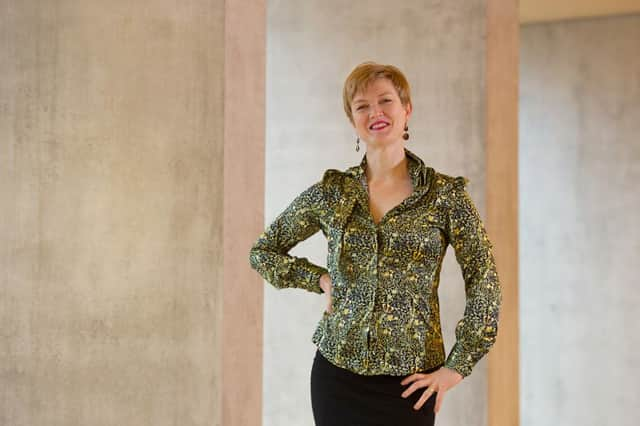Opera review: Scottish Opera: Ariodante, Theatre Royal, Glasgow


Scottish Opera: Ariodante | Rating: **** | Theatre Royal, Glasgow
The curtain opens; the overture plays. Two bodies dangle from the gibbet, an austere community looks on, a cleric prays routinely for their souls, they disperse and life goes on under the omnipresent cipher “Trust in the Lord”. It’s a community with a stifling, wintry, puritanical outlook on life, and there’s plenty of snow around to remind us.
Advertisement
Hide AdAdvertisement
Hide AdFehr has updated the action to an unspecified modern setting, and Yannis Thavoris’ designs reflect that contemporary eclecticism. Inside the “palace” - more a utilitarian public building with its emergency exit sign leading out to the incessant snowfall - all is shiny metal and minimalist.
It’s a perfect scene-setter for the story of Ariodante which is about to unfold: one of love, deceit, honour, retribution and, thankfully, a happy ending. So happy, in fact, that the ecstatic replacement of symbolically dying plants with bright new seedlings in the final scene is like a festive Spring episode of The Beechgrove Garden.
And it all works seamlessly as an amplification of Handel’s golden string of recitatives and arias, and for the well-balanced cast who animate the rich mix of dramatic characters.
Caitlin Hulcup’s Ariodante - in a role originally conceived for male castrato - is one built on stoical virtue, her velvety nuances a glowing enrichment of the writing’s surface virtuosity. Sarah Tynan’s Ginevra is delicate bordering appropriately on fragile, against which Jennifer France’s Dalinda (a Scottish Opera Emerging Artist to keep an eye on) is lustrous and delicately thrilling.
It took time in Tuesday’s opening night for countertenor Xavier Sabata’s Polinesso to fully engage vocally, but it’s a role he clearly lives for dramatically and which was firing on all cylinders by the musically fertile second act. Ed Lyon - who gets some of the very best music - is a towering presence as Lurcanio, a tenor of supreme agility and tonal control. Neal Davies is solid and soulful as the confused King.
The Scottish Opera Orchestra was still finding its way with this particular musical style on Tuesday, but there was a sense that conductor Nicholas Kraemer’s expressively straightforward leadership will make things click.